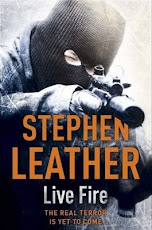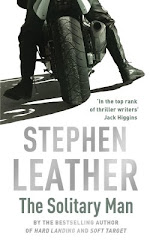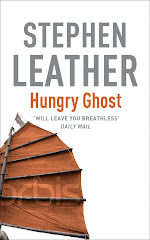As the CNN’s correspondent was ducking bullets in Bangkok in his armoured helmet and flack jacket protected by two former SAS bodyguards and shadowed by his own personal trauma medic, I had a more mundane task last week – to get my eleven-year-old daughter ready for her SAT tests.
The children at my daughter’s school in Bangkok sit their SATs two weeks after their British counterparts, and while back in the UK headmasters and teachers were doing their best to sabotage the tests, the staff and pupils at Bangkok Patana are all too keen to demonstrate how well they are doing.
Bangkok Patana is one of the best schools in Asia with an academic record that puts most UK schools to shame. But with Thailand in the grip of a near-civil war and the army shooting unarmed protestors, the school had to close, along with most of the others in the city.
So with SAT tests due to start on May 24, teachers had to resort to emails to keep their pupils on track, which is why as the Thai police and Army were facing down thousands of Red Shirt protestors in the city’s main business and shopping area, I was going over the basics of long division and basic algebra with my daughter, Sam, and marking her reading assignments.
The trouble had been brewing since March when tens of thousands of protestors – supported and allegedly funded by former prime minister and ex-owner of Manchester City Thaksin Sinawatra – flooded into the city. They set up a makeshift camp opposite one of the biggest and most luxurious shopping malls in Asia and announced that they wouldn’t be moving until the Government was dissolved and new elections held.
The city’s elite immediately switched their shopping trips to the almost-as-luxurious Emporium shopping centre and waited for the protestors to run out of steam. But the Red Shirts, mainly from the dirt poor North Eastern region of the country, dug in for the long haul.
When the softly-softly approach of Eton and Oxford educated Prime Minister Abhisit Vejjajiva failed to make an impression, he announced that he would use whatever measures were necessary to take back the city.
As always the British Foreign Office reacted like a headless chicken, recommending that none of its citizens travel to Thailand and shutting the embassy’s doors. But the expats who call Thailand home know that even during the frequent military coups and clampdowns, life generally goes on as normal in the Land Of Smiles.
The Foreign Office’s warning did the trick though, because when I flew in on Sunday (May 16) the business class section of my EVA flight from Heathrow was three-quarters empty and the normally bustling Suvarnabhumi Airport was deserted.
The standoff broke last week and by the time the streets were eventually cleared 85 people were dead and 1,402 were injured, a cinema complex had been destroyed and the huge Central World shopping mall and the Stock Exchange were in flames.
So what is it like living in a country that the world’s media keep saying is on the brink of civil war? Actually, it’s not much different from the way it was before it was on the brink of civil war.
If you watched CNN or the BBC you’d have seen lines of stony-faced troops, protestors throwing petrol bombs and launching home-made rockets, and defensive barricades made from tyres and bamboo spears. But where we live, just five miles away from the trouble spot, we never saw a single soldier and only the occasional pick-up truck of Red Shirt supporters heading for the demonstration zone. There were no sounds of gunfire, no bombs, no heavy artillery.
There were inconveniences, of course. The Government shut down the Skytrain, one of the most successful of Bangkok’s impressive list of infrastructure projects which whisks thousands of passengers a day above the heads of the city’s notorious traffic jams. Then they announced that there would be a five day public holiday, whether people wanted it or not. And then they announced a curfew.
It was the curfew that took everyone by surprise, with the Government announcing at lunchtime on Wednesday that everyone had to be home by 8pm. Most of the main supermarkets immediately closed so everyone rushed over to the 7-11 corner shops to stock up on the basics. But even the panic-buying was carried out Thai-style with little rushing and a lot of smiles.
As the curfew drew closer, taxis started behaving the way that they do when the monsoon rains hit – they prowled around with their doors locked negotiating outrageous rates with desperate wannabe customers. With the buses cancelled, thousands of people began the long walk home. Rumours started to spread that ATMs would be shutting down during the hours of curfew but as everyone was inside, no one could check if it was true or not.
Disbelieving sex tourists headed for the internet forums, desperately trying to find out if the city’s go-go bars and saunas would still be open. When they realised they wouldn’t be – bar owners had been told they faced two years in jail if they were caught breaking the curfew - many headed for Pattaya, the seaside resort where anything goes, to discover that it was also being shut down at 8pm. The wealthier immediately booked flights for Phuket in the south which remained unaffected by the clamp-down.
When the troops went in on Wednesday, the protestors set fire to the barricades and looted shops. I had friends who were closer to the action who heard gunfire and saw plumes of smoke as the city burned but I was busy giving my daughter spelling tests and working through mental arithmetic questions and trying to find out if Pizza Hut were still delivering.
The curfew was extended for the whole of last week and was then extended on a day-to-day basis though shortened from 8pm to 6am to 11pm to 5am. As the curfew continued, the supermarkets traded as usual and panic-buying vanished. The Skytrain started operating on Sunday and taxis have gone back to using their meters. Bangkok Patana reopened and the children took their SATs. Bangkok has returned to normal. But the underlying problems remain. The bulk of the population are poor and the rich elite that runs the country is in no hurry to spread the wealth around. The Red Shirts will probably be back. But at least next time my daughter won’t be taking her SATs.
Subscribe to:
Post Comments (Atom)






































3 comments:
I've often thought quite seriously about sending my daughter to Bangkok Patana. But I would miss her dreadfully from our home in Sydney. I presume you still spend more time out of Thailand than in it. From your perspective, is it still worth it?
Nope, not at 46 baht to the pound, it isn't!
46! In 2004 it was 74 and in 2009 we were getting 52
Post a Comment